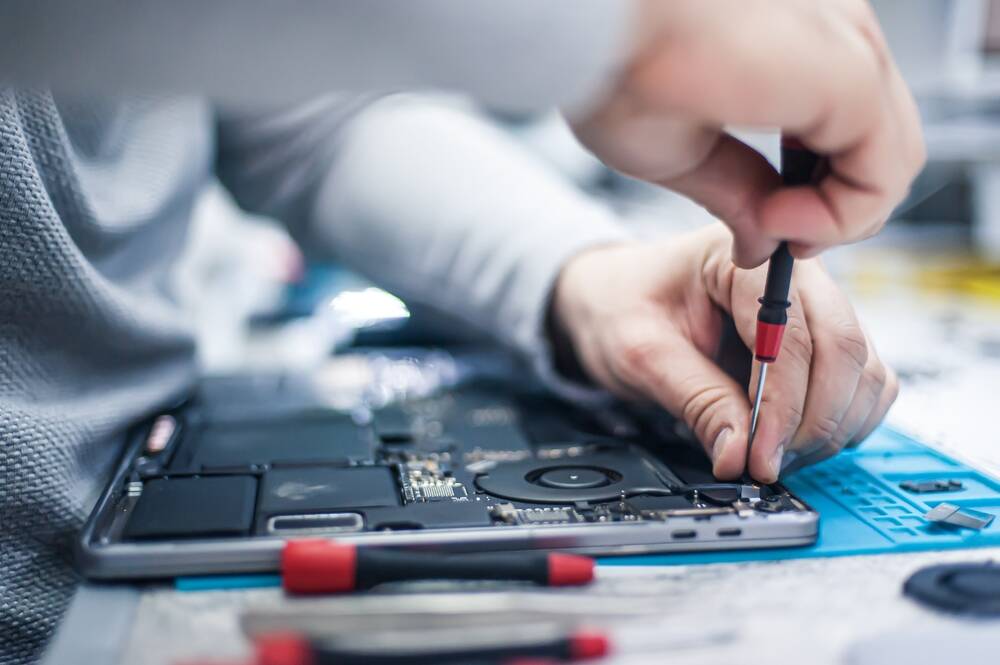EU Repair Rights Bill Tells Manufacturers To Fix Up Or Ship Out

The European Parliament has reached a provisional deal on EU regulations to strengthen consumers' right to repair.
Negotiations over the bill have been ongoing for a while now - the rules were first proposed in March 2022, and the hope is that new requirements will be finalized in 2024.
The thinking is that consumers should be better informed about the lifespan and repairability of products before buying them, and there should be measures to boost repair after the legal guarantee period has expired.
All told, the bill looks set to bolster the repair sector. Manufacturers must make spare parts and tools available for "a reasonable price" and be prohibited from using contractual clauses or hardware or software blocks to obstruct repairs. While singling no company out specifically, the European Parliament said: "In particular, they should not impede the use of second-hand or 3D issued spare parts by independent repairers."
The Register contacted Apple for comment, but the company has yet to respond. It has acquired a reputation for parts pairing, where components must receive the company's blessing before use.
Other consumer rights in the deal include options for borrowing a device while their own is being repaired or opting for a refurbished unit, an additional one-year extension of the legal guarantee for repaired goods, and free online access to indicative repair prices.
- What to make of Google backing Right-to-Repair in Oregon? 'It gives me hope'
- UK government lays out plan to divert people's broken gizmos from landfill
- Fairphone 5 scores a perfect 10 from iFixit for repairability
- Right-to-repair fight going national as FTC asked to lay down the law
Under the regulation, manufacturers must inform customers of the duty to repair and be obligated to fix "common household products," such as a washing machine or smartphone. The European Parliament has left open the possibility of adding more items over time.
To assist with sorting out repairs, the European Parliament expects an online platform to be set up, with national sections to connect consumers with local repair shops and vendors of refurbished goods. It will also be possible to find buyers of defective items.
Each member state will be required to introduce at least one measure aimed at promoting repair – for example, a reduction in taxation on repair services or information campaigns.
René Repasi of the Progressive Alliance of Socialists and Democrats said: "The agreement introduces an extra 12 months of legal guarantee for products and ensures independent repairers have improved access to spare parts. Furthermore it prohibits manufacturers from using contractual clauses, software and hardware techniques that hinder repair."
It will be a while before this all goes into effect, though. Once both Council and Parliament adopt the directive, member states will have 24 months to get it into national law. ®
From Chip War To Cloud War: The Next Frontier In Global Tech Competition
The global chip war, characterized by intense competition among nations and corporations for supremacy in semiconductor ... Read more
The High Stakes Of Tech Regulation: Security Risks And Market Dynamics
The influence of tech giants in the global economy continues to grow, raising crucial questions about how to balance sec... Read more
The Tyranny Of Instagram Interiors: Why It's Time To Break Free From Algorithm-Driven Aesthetics
Instagram has become a dominant force in shaping interior design trends, offering a seemingly endless stream of inspirat... Read more
The Data Crunch In AI: Strategies For Sustainability
Exploring solutions to the imminent exhaustion of internet data for AI training.As the artificial intelligence (AI) indu... Read more
Google Abandons Four-Year Effort To Remove Cookies From Chrome Browser
After four years of dedicated effort, Google has decided to abandon its plan to remove third-party cookies from its Chro... Read more
LinkedIn Embraces AI And Gamification To Drive User Engagement And Revenue
In an effort to tackle slowing revenue growth and enhance user engagement, LinkedIn is turning to artificial intelligenc... Read more

